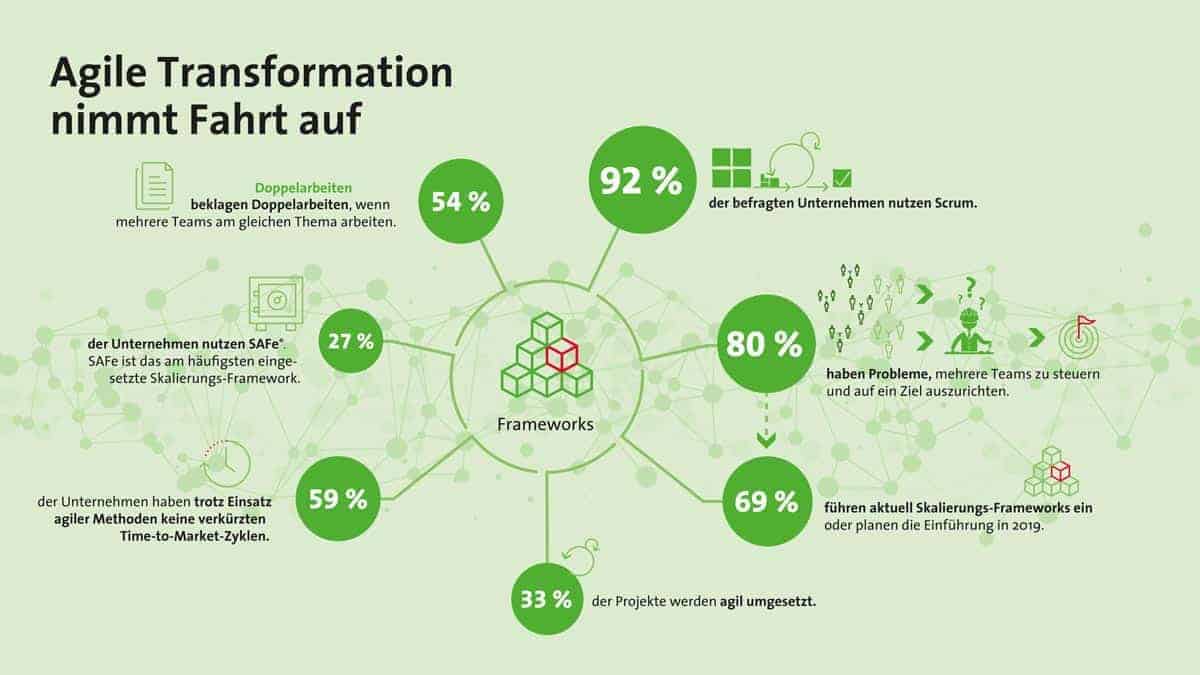Lünendonk Study 2019: Agile Transformation


The topic of agility is currently on everyone's lips. But what is the current state of agile transformation in German companies? Market researcher Lünendonk has conducted a study on the topic of "Scalable agility - from agile to digital transformation".
The study shows that the participating companies are working intensively with agile methods. On a positive note, 67% of companies attach significantly more importance to change management and behavioural transformation than in the past - a very important prerequisite for mastering the switch to self-organizing units and thus for an agile transformation.
The trick will be to transfer the successes achieved with agile methods to other environments. To do this, however, user companies and existing SAP customers will have to change in many respects.
Today, agile transformation is no longer just an IT issue. Rather, the added value of agile methods such as proximity to the customer, the ability to react quickly to changes and shorter time-to-market times are essential for business.
The results show that the agile transformation is in full swing in most companies. The majority of study participants (65%) believe that their own company is currently at the beginning of the transition.
However, according to the study participants, only 23 percent of the 24 large companies and groups surveyed currently have fully agile requirements.

The study shows that the transition to agile process models such as Scrum, SAFe or LeSS is a complex and long-term journey. Simply introducing agile methods is not enough.
However, it seems somewhat more problematic that the majority of the companies surveyed predominantly want to achieve the agile transformation with the existing team.
Comparatively few companies (45 percent) are currently focusing on new roles and personalities in recruiting and only 58 percent are investing in the development of training and education capacities to support their employees in the transition to agile working.
However, this value should increase in the future in order to accelerate the necessary change processes. In fact, the organization, processes, corporate culture and management tools must undergo a radical transformation. In the future, HR departments in particular will be called upon to recruit the right talent and successfully accompany the change.





